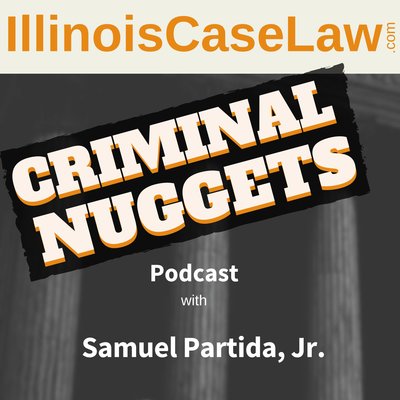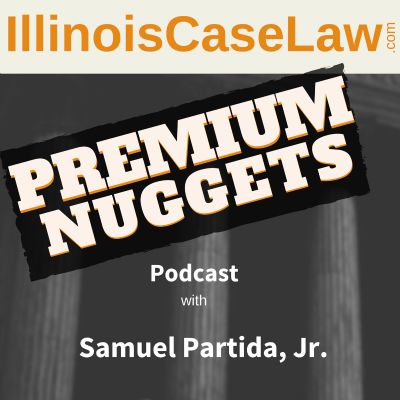Sep 18, 2014
The plea bargaining on a drug case with a defendant with a prior drug conviction can feel like a boxing match with one of the fighter’s arms tied behind his back. In my little analogy, guess which side has their arms tied down?
The prosecution had a pretty powerful tool they could use to hammer the defense and seek a higher sentence. They are quite fond of pointing out to the defense that a defendant with a prior drug conviction could be sentenced to double the maximum.
Well People v. Williams is a decision that may allow the defense bar to reset their plea bargaining with the State on their next drug case.
Let me explain.
Illinois sentencing statutes are all over the place. Careless lawmakers just keep adding things to the pile and leave it to us and the courts to figure it all out.
Well, in regards to the sentencing of drug offenders with prior drug convictions things have been straightened out in favor of the defense.
The Illinois Compiled Statutes Criminal Code contains a section that I will call the Double Drug Conviction Enhancement. This sentencing law says:
“Any person convicted of a second or subsequent offense under this Act may be sentence to imprisonment for a term up to twice the maximum term otherwise authorized.”
720 ILCS 570/408. The Act referred to is the Controlled Substance Act. See why I called it what I did. It says any person with a prior drug conviction being sentenced on new drug case can be sentenced on an enhanced sentence, double the maximum.
However, the Illinois Compiled Statutes Code of Corrections contains a section that I will call the Exclusive Extended Term Provision. This different sentencing law says:
“A judge shall not sentence an offender to a term of imprisonment in excess of the maximum sentence authorized by Article 4.5 of Chapter V for an offense ... unless the factors in aggravation set forth in Section 5-5-3.2 or clause (a) (1) (b) of Section 5-8-1 were found to be present...”
730 ILCS 5/5-8-2. Article 4.5 of Chapter V is merely referring to the felony classification system in Illinois. The clause (a) (1) (b) of Section 5-8-1 is dealing with murder cases. But the factors in aggravation set forth in Section 5-5-3.2
Some of these factors in aggravation include:
Young victim
Older victim
Especially brutal Act
Especially heinous act
Defendant had prior conviction with same class or higher within last 10 years
So we have these two sections living in harmony. Before this case, it was just like adding one more factor to the above list. If a person with a drug case had a prior drug case he was enhanceable. That was the working rule.
Well, the Third District went back and read the Exclusive Extended Term Provision a little more closely. They noticed how it began, “A judge shall not sentence an offender to a term of imprisonment in excess of the maximum...” The term “shall not” sounds like they are prevented from doing something.
In fact, the appellate court interpreted this section to be an exclusive extended term provision. Meaning, any and all sentencing enhancements must be authorized by this section and no other. See how I got the name.
Well about the Double Drug Conviction Enhancement? Well to state it simply, that statute is out. It loses. The Exclusive Extended Term Provision wins out and takes precedence.
This means, that a person being sentenced for a drug case and if they have a prior drug case in their past will no longer be beat over the head with the threat of an enhanced sentence. If a drug offender with a past does not qualify for an enhancement under the Exclusive Extended Term Provision then they are not enhanceable at all.
This means that a drug offender being sentenced on a new offense can only be enhanced if that prior drug case is of the same class or higher as the new offense AND is within the last 10 years.



